Cameroon: Women’s cooperatives create ‘family’ bonds amid crisis
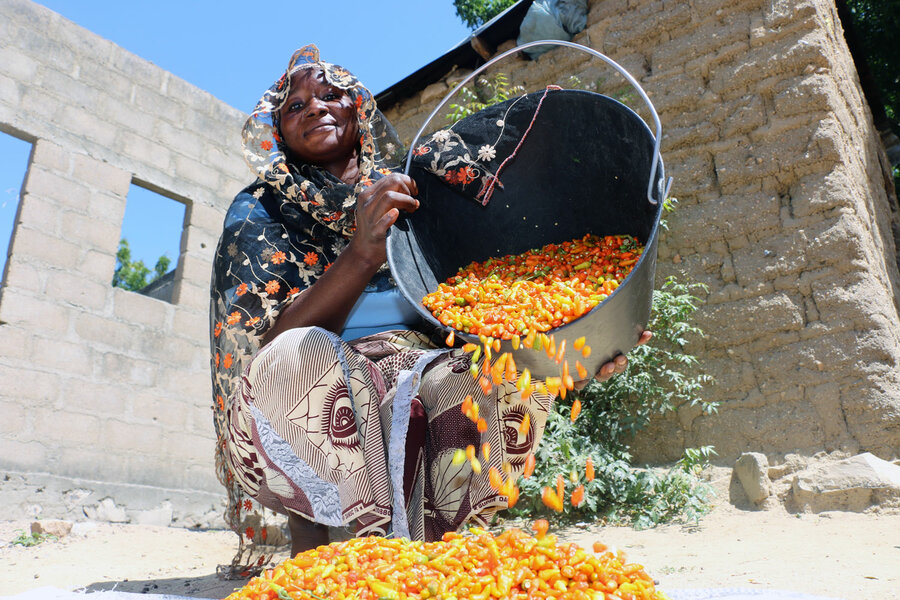
Mayramou Hamadou wears a smile on her face like a badge of honour. Though the mother of four doesn’t own land, she is part of a community effort that feeds the town of Mayo-Moskota, in Cameroon’s troubled Far North region.
This year, the 47-member Klakil Farmers cooperative — of mostly women supported by the World Food Programme (WFP) — has harvested over 100 kg of peppers from its 7-hectare plot. Its members include longtime Mayo-Moskota residents but also displaced people like Mayramou, who fled the Boko Haram insurgency that has gripped this region and parts of neighbouring Nigeria too.
Today, she manages the cooperative’s produce until members are ready to sell so they can maximize profits.
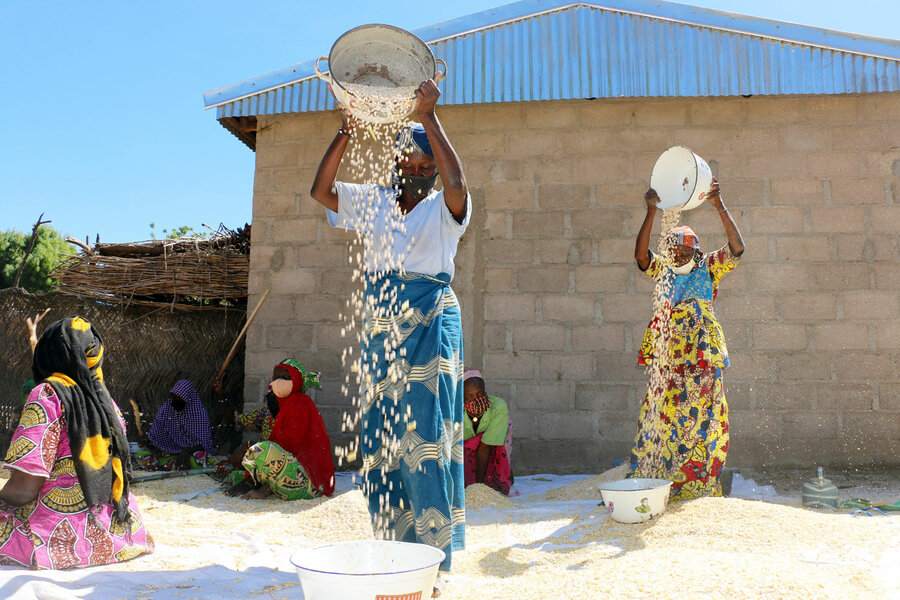
“Our resilience is not just in the food we produce, but also in the fact we know we can count on each other,” says Mayramou.
WFP supports cooperatives like Klakil in ten Far North communities, helping members manage their finances, increase their harvests, get through the lean seasons, and earn a profit in the markets. In partnership with the Korean International Cooperation Agency (KOICA), WFP also offers logistical support to the cooperatives, and funding to develop village savings-and-loans associations.
Such investments enable members to finance further resilience-building projects.
“Together, members of the cooperatives are finally able to gain market access,” says Marieclaire Nkwenti, WFP Cameroon’s programme assistant for livelihoods and resilience. “They can sell produce at fair, bargain prices to large retailers, schools, supermarkets — and even to WFP.”
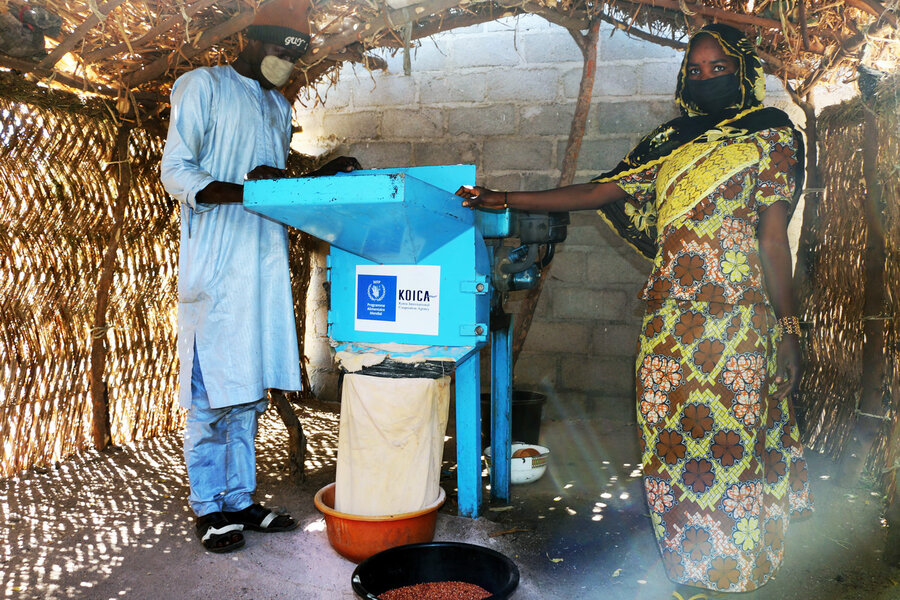
So far, some 11,000 people have benefitted from the US$8.3 million initiative which began two years ago. It's created eight savings-and-loan associations in villages, and seven farming cooperatives — along with other projects like fishponds, water harvesting points and vegetable gardens.
Each cooperative has a mix of participants that include internally displaced people, refugees and members of the host communities. Together, the members decide which development projects to implement, providing much sought-after work opportunities.
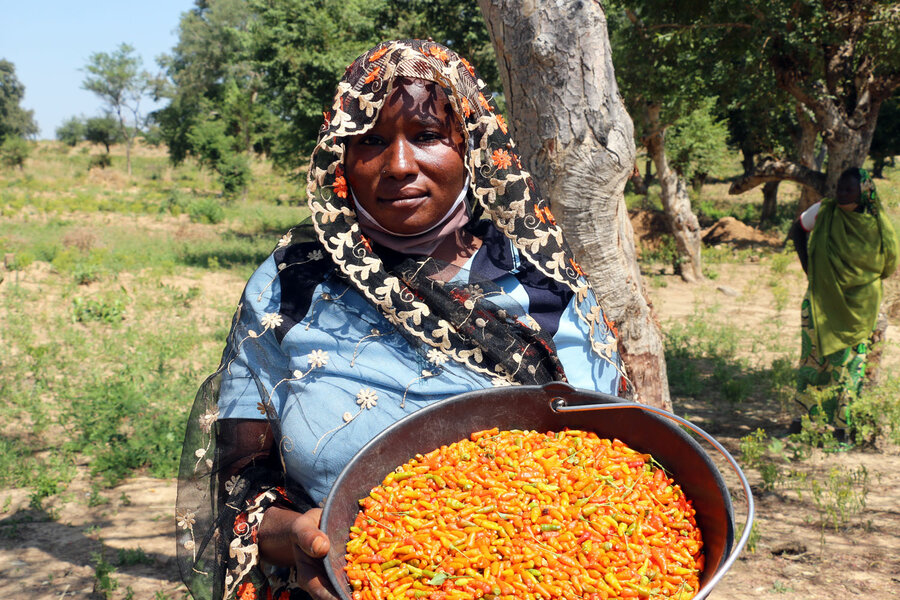
The project has proved valuable in a further way, through integrating newcomers into the communities. In Mayo-Moskota and other participating communities, cooperative members say they have forged some of their most enduring friendships with fellow members. Among them are people who've fled the devastating effects of recurrent droughts and floods on crops and livelihoods, in search of better growing conditions.
As they work together to harvest produce with the local farmers, stories are shared of experiences that help to build stronger bonds. They have all become friends and family to each other.
“Working alongside displaced people has been eye-opening,” says Gadia Gisata, a resident from Zamai, another town participating in the WFP/KOICA project. Her cooperative works with residents of the Minawao camp, Cameroon’s largest refugee camp, located some 10 km away.
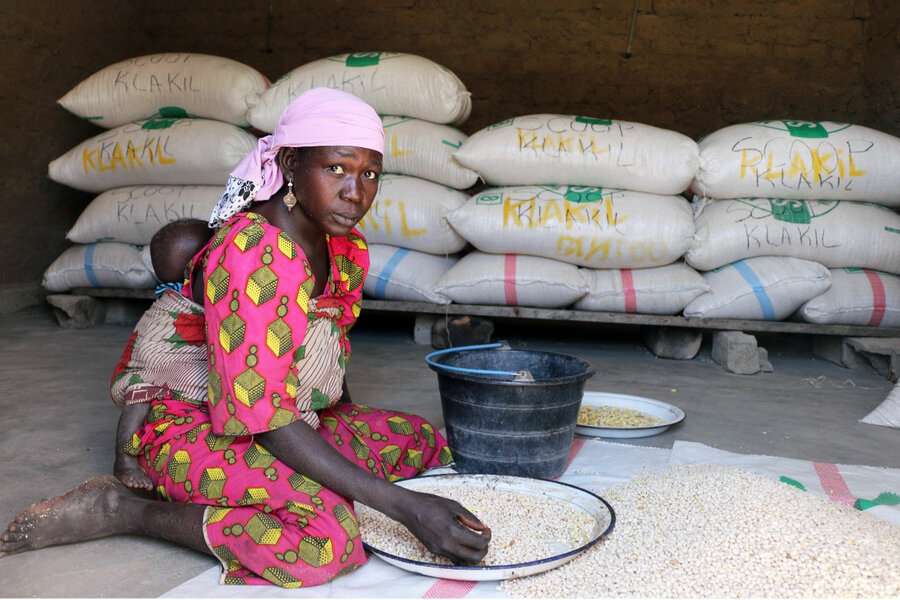
“I have made new friends and learned a lot from hearing about their struggles,” says Gaida. “This project has really reinforced our cooperation and shown us that, together, we can build buoyant communities.”
Members of other cooperatives agree. Fanta Hasan, 41, a member of a cooperative in Doublé village near the Nigerian border, has been a source of strength for Gaida and other female participants.
“When we started the project, I wasn’t sure what to expect,” says Gaida, a mother of eight. “But so far, it has been a blessing. Working together as a community cooperative has been beneficial for us all, and the harvest has been fruitful.”
Window on Syria: Ten years of conflict through the lens
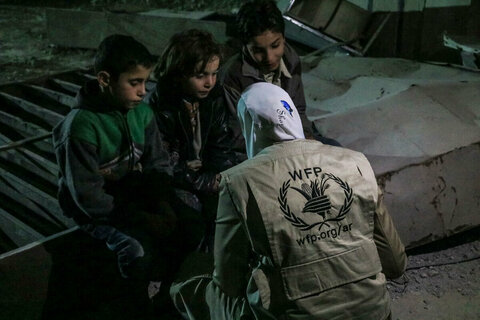
To be sure, the challenges these communities face — such as conflict and climate change — persist. But the strength of the bonds they've forged endures too.
“We have learned to depend on each other, to give a helping hand to strangers, keep smiling and share our meals,” says Fanta.
Cash grants form WFP have also helped her gain more independence. “I no longer have to ask my husband for money to ensure the upkeep of our home or to feed my children,” she says. Fanta hopes this increased independence will continue even after the project ends.
Mayramou, too, knows the project may soon come to an end. But she is happy with the friendships she has developed within the community.
“I know we will continue to work together,” she says, “and that thought alone gives me hope.”
Explain WFP’S activities in clear terms
...working with communities on climate-risk reduction.
...building flood-protection walls as well as taking part in vocational training for example on the use drought-resistant crops.
...providing cash for asset-creation.
The project will provide 3,000 people and their families with cash in exchange for work restoring or building irrigation canals and forest areas.
Explain WFP’S activities in clear terms
“Working with communities on climate-risk reduction”
“Building flood-protection walls as well as taking part in vocational training for example on the use drought-resistant crops”
“Providing cash for asset-creation”
“The project will provide 3,000 people and their families with cash in exchange for work restoring or building irrigation canals and forest areas.”
